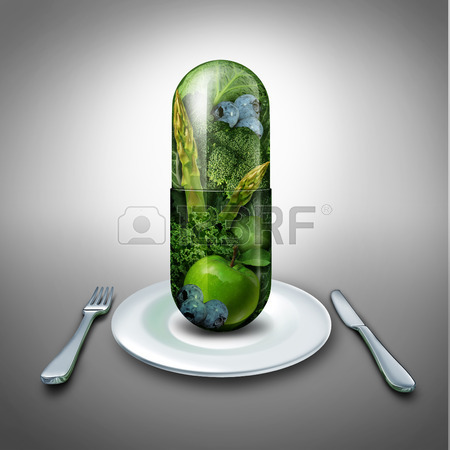
Nutrients can be synthesised or isolated in a lab, but do vitamins that have been man-made or tampered with benefit the body as optimally as nutrients from wholefoods? Dr. Jaroslav Boublik offers insight into the case for natural nutrition.
Strengthening your body is gradual and ongoing. You practice Pilates to build core strength and ideally, you fuel and nourish your body with a balanced diet. But even the most health-conscious individuals may find it difficult to consume their recommended daily intake of nutrients (RDI). Busy schedules, a lack of diversity in available produce, confusion about what makes up RDI – there are many reasons why 93% of Australians aren’t consuming enough nutrients.
Dr. Jaroslav Boublik has dedicated his professional life to nutritional science. He is an Associate Member of the Australian College for Nutritional and Environmental Medicine and he’s had over 30 peer-reviewed articles published in scientific journals – his work in the field is known across the globe. Most recently, he has helped co-formulate the Activated Nutrients range of Australian-made wholefood supplements and holds the position of Chief Science Officer on the Activated Nutrients team.
According to Dr. Boublik, many bridge the nutritional gap in their diet with supplements. He says, “The reason we produce, and people consume, nutritional supplements is to supplement the dietary intake of specific nutrients. That may be because they are aware of a dietary deficiency, or because of a generally poor intake of quality foods and therefore adequate nutrition.”
A recent study by Roy Morgan found that 42% of Australians take a dietary supplement. As the demand for supplements spiked, so did the use of synthetic or isolated vitamins across the industry. Dr. Boublik explains that on a molecular level, there is no difference between synthetic vitamins and vitamins from wholefood sources – but that doesn’t mean they provide equal benefits to your body.
“There is a certain arrogance in nutritional science that suggests we know what all of the required nutrients are for good health. The reality is that even in the past ten years a number of new micronutrients have been [discovered],” Dr. Boublik says.
Micronutrients might be the key to the case for natural nutrition. These co-nutrients are found in wholefoods, accompanying the ‘big’ vitamins that we all know and recognise – Vitamin B, Vitamin A, etc. Take Vitamin C for instance. Dr. Boublik explains that Vitamin C is generally easy for the body to absorb, but it is only utilised optimally when it is taken with bioflavonoids. And bioflavonoids naturally occur in citrus skin. He says, “It’s a perfect example of how nature includes key additional factors to optimise the effectiveness of nutrients in food but which we can easily miss if we just use isolated or synthetic vitamins.”
Dr. Boublik co-developed Activated Nutrients based on this evidence. “The strongest position we can adopt is to provide comprehensive formulations based on, wherever possible, whole food extracts,” he explains. By using the whole ingredient, you can be sure that the full range of nutrients, including micro-nutrients that have not yet been discovered, are present and providing maximum benefits to your body.
Activated Nutrients
The Activated Nutrients team wants to help people strengthen their bodies by bridging the nutritional gaps in their diet. The Australian-made Activated Nutrients supplements range is derived entirely from wholefoods with no synthetics, a formulation based on the latest nutritional science. The team is dedicated to educating the general public on health and nutrition and thus avoid misinformation and hype in the wider community.

Comments are closed.